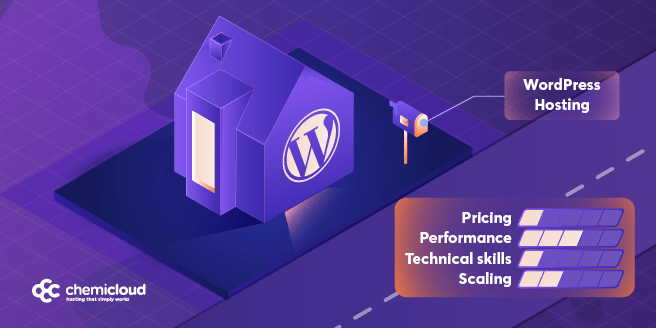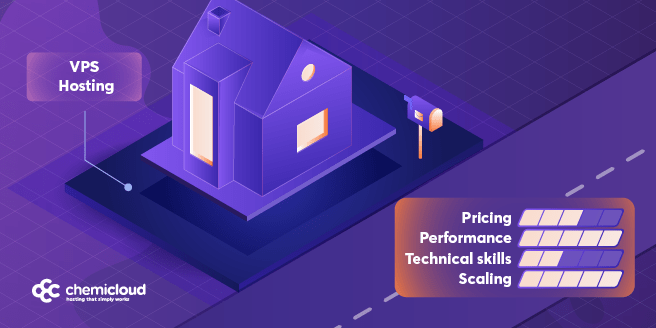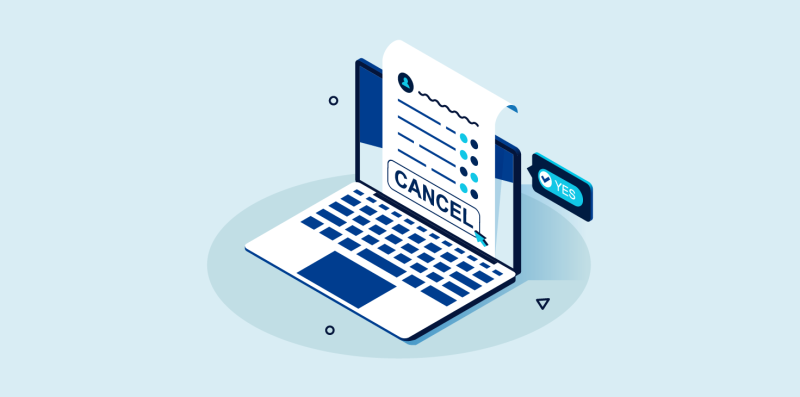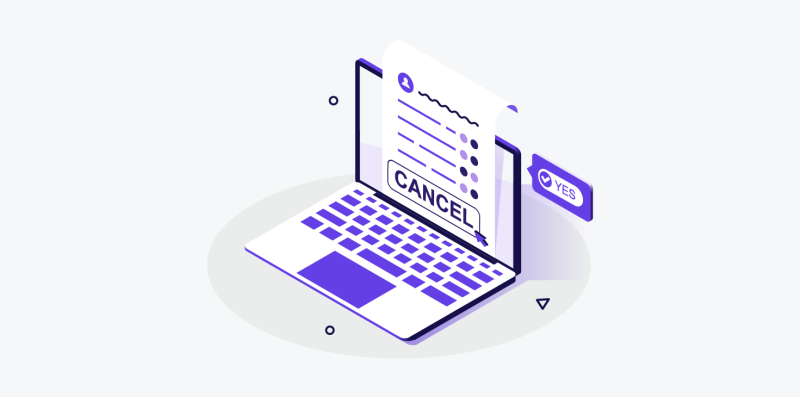Do you remember what it was like to use the internet for the first time? What about the service or device you used, where you were that day, or even what you were wearing? I’d like to imagine your experience was as exhilarating as mine was when I logged into Prodigy for the first time and discovered I could talk to other people about my cats! Yes, although I may be dating myself, even back then people on the internet worshipped their cats.
For some of us, playing around in the original internet browsers like AOL, Prodigy, Internet Explorer, Netscape came pretty naturally. Modern browsers like Chrome and Firefox have made the web even more accessible. However, it’s not always so intuitive for everyone. Today the internet is so large and complex that the sheer number of options can be daunting, let alone the frustration of trying to turn your idea into a website but don’t know how to start.
If you can relate to that, this is the guide for you. By the end of this post, you’ll know all about what is web hosting, what is a website, what is a domain name, and how they work together.
Let’s get started!
Table of Contents
- What is a website?
- Why do I need a website?
- What’s the difference between a Website and a Web Page?
- What is required to build a website?
- What is Web Hosting and how does it work?
- What is web software?
- What is a Domain Name?
- How does Web Hosting work together with a Domain Name to work with my website?
- How can ChemiCloud help you with a website, Web Hosting, and a Domain Name?
What is a website?
A website is a collection of related web pages under a single domain. Websites are used in various fashions, such as personal websites, corporate websites for businesses, government websites, and more.
Why do I need a website?
If you are a business without a website, you may as well not exist with new potential customers. I can’t imagine that a business could even survive in 2021 without a website or some sort of internet presence. You’re in business for a reason, after all. Whether that is to sell your own products, or someone else’s, you’ll want to attract customers so you can earn money, right? A website is probably the best way to do that… okay, maybe the second-best way, in some circles, advertising rules and websites come second, but I digress.
Having a website allows you to build an online presence where prospective customers can learn more about your company and the products or services you offer. This online presence also helps your company establish trust with your customers who are going to want to know everything from your product offerings to your business’s history.
Do you search for companies or products on Google, or another search engine du jour? Without a website, those companies wouldn’t have a results page on Google and relatively few people would know about them. Building your website and incorporating techniques for Search Engine Optimization (also called SEO) helps people find you by searching for relevant keywords that are similar to what you do or offer. This is an important way to get new customers in the door.
What about customer service? If you sell goods or services, you want to be sure customers have a way to contact you. With a website, you can elevate your customer service experience by providing customers with multiple ways to interact with you.
What’s the difference between a Website and a Web Page?
If you think of your website as a booklet, the web pages are the individual pages of that booklet.
A website selling a product usually has individual web pages like:
- Home, which gives visitors the key message of what you do, and directs them to the most important thing you’d want them to do once there.
- About, which tells people about your company and how you came to be doing what you do.
- Shop, where you sell your products or services, often with photos.
- Contact, where you direct your customers to get in touch by phone or email or even in person, where applicable.
These individual web pages comprise your total website, and each has its own value in service of the overall purpose of the website.
What is required to build a website?
Time, patience, and a little money to start. We’re not talking hundreds or thousands of hours or dollars here, but depending on what you want, you can set up a simple site in 30 minutes or a complex one in a few hours.
Once you have that, you’ll need to understand what is web hosting, web software, and domain names.
What is Web Hosting and how does it work?
Think of a website like a house. Each house has two complementary parts: an address and a portion of land where the house sits.
In simpler words, web hosting is like the land where you build your house. The land is the space on the Internet where you store your website’s files. Typically, web hosting service runs on a physical server owned by a web hosting company, such as ChemiCloud. When you sign up for a web hosting service, you rent a small piece of space of that server.
A server is a physical computer that runs without any interruption so that your website is available all the time for anyone who wants to see it. Your web host is responsible for keeping that server up and running, safeguard it, and serving your website’s content — such as text, images, etc. — from the server to your visitor’s web browser.
Why do I need Web Hosting?
Without web hosting, you cannot build web pages and your domain name would point to nowhere. It’s like having a home phone number, but all the phones are unplugged from the wall. People can call you all they want, but no one is going to answer.
A good web host will keep your private information secure, and make sure your website is available to customers 24/7.
What kind of Hosting types are available?
Lots of different kinds! However, by and large, there are 3 popular types of hosting you’ll most likely consider:
- Shared Hosting
- WordPress Hosting
- VPS Hosting (Virtual Private Server)

Shared Hosting is the most common web hosting for individuals just getting started. With shared hosting, you get a private account on a server that is shared by other people, instead of getting one completely on your own. Modern servers are more than fast enough to host multiple standard websites at once, so sharing a server means a lower cost for you. There are some downsides to Shared Hosting, however, including “noisy neighbors” which can affect the speed of your website from time to time.

WordPress Hosting is a type of shared hosting but offers different features and options than regular web hosting. WordPress hosting will help you get your WordPress website up and running more quickly and easily than other web hosting plans.

VPS Hosting (Virtual Private Server) is the next step up above shared hosting. With VPS hosting, you get many of the benefits of dedicated hosting, with the affordability of shared hosting. A virtual private server takes a normal server’s resources and divides them up into equal slices. Because they’re divided equally, a single user can’t use more resources than they are assigned, which means your website will be reliably performant. With the advent and popularity of VPS Hosting, Dedicated Hosting has taken a backseat in the Hosting Industry and has become less common than it was 10 years ago.
Which kind of Web Hosting should I choose?
If your website is new and not getting a lot of daily visitors yet, a decent Shared Hosting plan should work fine for you.
If you already have an established online business or you anticipate having a website that’s really popular, go with a VPS.
But for the vast majority of people, consider the near-term needs of your website when shopping for web hosting. Don’t buy hosting based on an imagined future. Save your money now, and splurge later once it’s warranted.
What criteria should I use when evaluating Web Hosting providers?
When choosing a company to partner with for web hosting, there are some very important criteria to take into consideration, such as:
- How long has the Web Hosting company you’re looking at been in business? Are they likely to disappear tomorrow? Are they well established in the hosting industry or do they appear to be a fly-by-night operation?
- How stable are the prices? Lots of web hosts will offer a compelling introductory price to get your business, but after the year or two-year plan is up the price goes up and can double, even triple!
- What do the reviews say? Does the company have a profile on public reviews websites such as TrustPilot or G2? If so, do the reviews say good, meh, or bad things about the company?
- Do they offer plans or services that are more premium than the plan you’re looking at purchasing? This is a question of scalability. If your site outgrows the Shared Hosting and you need to move up to a VPS, do they offer that? Will they migrate your website from the Shared Hosting platform to the new VPS for you, or must you do that? Make sure you can scale up if your site’s needs grow without having to move to a new host.
- How is their customer support? Are they available 24×7 or do they have specific hours? How can you communicate with them? When evaluating a web host, definitely hop into their live chat or open a ticket and ask them questions. Even if you already know the answers to those questions, their response should be friendly, courteous, and professional. It should make you want to work with them, not run away!
- Does the host you’re looking at hosting your website with offering a money-back guarantee or a trial period? Do: have a trial period with the host and test them. Don’t: blindly give money to a company that cannot be refunded if things don’t work out.
Do I need technical support for my Web Hosting or Domain?
Yes! Even the best, most experienced Web Hosting professionals, programmers, and technicians need help now and again. There isn’t a single person who knows the sum of all knowledge as it relates to the internet and computers. Hosting your website with a company that employs high-quality, responsive, and knowledgeable staff is imperative! After all, you’re just getting started with your site. What if you have technical questions? You should never feel left in the dark.
What do I risk if I choose the wrong Web Host?
Choosing the wrong web host can lead to some pretty bad things, namely:
- Loss of time. Say you spent a month building the most resplendent website the world has ever seen. You’ve even got backups in your hosting control panel, just in case. But one day, you wake up and check your website and it’s gone. You go to login to that control panel to see what’s happened, and your browser can’t find it. Next, you go to open a ticket with the hosting company you use, and their website is gone. They’ve up and disappeared and taken your website and all it’s content with them. All the time you spent is now for naught as you’ll have to rebuild from scratch. This can be devastating to some users.
- Loss of money. Say you prepaid for 3 years of hosting service with the company you’ve chosen and you got a really good rate. If after 6 months you learn their hosting is rubbish and their support isn’t friendly, that company probably won’t give you the money you paid for the remaining 2.5 years. For this reason, consider a month-to-month hosting term as you begin a relationship with your web host of choice.
- Loss of customers. Say you run an e-commerce website and your website is frequently down because your web host can’t keep their servers online, or even worse, your website is slow because the servers your host uses are poorly maintained. Customers will likely choose to shop elsewhere if they can’t get to your site at all, or in a timely manner. Especially users on mobile devices where user patience is even more limited than on a computer.
What is web software?
Web software is applications, technology, or code that is used to produce (or render) the actual website your visitors see. Think of your website as a booklet, and the web software as the printer. Fortunately for you, “printers” these days are very helpful because they help out with both the printing and the designing that comes before with helpful templates.
Web software is often free and is typically quite easy to use and well documented, and often large communities of people support the product, should you need help.
What web software do I need?
As far as software is concerned, most of what you would need to get online can be found as free and even open source. A lot of free software has no up-front cost but may cost something if you decide to customize or add fancy features later on. Open-source software is both free up-front and forever free to be modified because you have complete control of its internal source code.
One of the most popular, if not the most popular, pieces of Free Open Source Software (FOSS) to build a website is WordPress. You may have heard of it. If not, I’d be willing to bet some of the websites you frequent for news and updates on topics that interest you are running on WordPress in one way or another.
WordPress is a PHP-based Content Management System (CMS). If you read that and feel overwhelmed and think this is going to be complicated, don’t worry, I’ll break it down for you.
PHP is one of many web programming languages out there. You don’t need to understand any PHP or learn a single line of code in order to use WordPress thanks to its simple-to-use CMS. This means WordPress is equipped to handle and manage different types of content, the information or media which fills the pages of your website.
WordPress began as the go-to software solution for people who wanted to start a blog. Today, it’s the go-to software solution for people who want to build websites, portfolios, forums, photo galleries, sophisticated e-commerce stores, and yes, still blogs.
Tried WordPress and aren’t happy with it? Don’t worry, that’s not the only Free and Open Source solution available! There are tons more, including solutions built on Joomla, Drupal, Django, Node.js, Ruby on Rails, Vue.js, and more!
What is a Domain Name?
Think of a domain name like your house’s street address, so basically, a domain name is your address on the internet! It’s what people will type into their browser (or sometimes their search engine) to find, engage with, and communicate with you! For most companies, a lot—and I mean a lot—of research goes into selecting a domain or set of domain names to use for their business. There are entire marketing companies that exist for the sole purpose of providing their clients with ideas for their domain name.
Think of some of the most famous or iconic domains out there. What comes to mind? Google? Netflix? Instagram? The domain name industry is worth $7 BILLION dollars in the United States alone, with analysts projecting solid growth over the next 5 years.
There are more than 330.6 million domain names currently registered, and with an estimated near 4% annual increase in domain registrations, now is the best time to register yours!
Let’s answer some commonly asked questions about domains, starting with a fun fact:
LasVegas.com was the most expensive domain name sale transaction to ever take place and it’s rumored the owners of Vegas.com paid up to $90 million dollars.
Why do I need a Domain Name?
There’s a really good technical reason why you need a domain name and it’s 3 letters: DNS. Without DNS, the internet would be a lot more complicated and maybe even impossible to use.
DNS, or Domain Name System, is like GPS navigation for the internet. It’s what makes it possible for you to type a name like Google.com into your browser and arrive at your destination instead of having to memorize its true address: 142.250.185.142.
Every website has one or more complex addresses behind it known as an IP address. Without DNS and simple domain names, going to any website would be a huge hassle. I can barely remember the phone numbers of friends or colleagues, let alone the IP address of every website I might want to visit.
While you can have a website without a domain, the experience in accessing those isn’t very user-friendly and for the same reasons you need a website as we mentioned earlier in this writeup, you need a domain.
How can I get a Domain Name?
Society has made convenience a priority, thankfully, which means it’s easier to register a domain name than it is to buy a Big Mac.
Most web hosting companies also sell domains, so you usually have the option to buy both your hosting and your domain from the same company.
There are more than 2,500 domain registrars accredited by the Internet Corporation for Assigned Names and Numbers (ICANN). ICANN is the independent governing body for all things internet, responsible for the registration of domain names and helping preserve the operational stability of the internet, among other things.
How to Buy a Domain Name: A Step-by-Step Guide
How can I choose a Domain Name?
Most people who buy a domain name for their company try to get theircompanyname.com or theircompanyname.net. But with so many .com and .net domains already registered, getting a good one requires you to be a little creative.
When it comes to choosing a domain that gets results, here are some tips that will help you out:
- Choose a domain that is easy to type. If your business is Bob’s Roofing, Flooring, Tile, and More, you shouldn’t get a domain like bobs-roofing-flooring-tile-and-more.com because that’s really tedious to type. Also, try to avoid slang or misspelled words, like transforming express to xpress.
- Try to keep your domain name short. Sure, domain names can be up to 253 characters in length, but no one wants to type in a long domain, especially on mobile devices.
- Target your locale. As we’ll talk about in a little bit, there are a lot of newer domain endings to choose from, which means you get even more selection when it comes to picking the perfect domain. Does your business serve people primarily in the NYC or Las Vegas area? If so, then why not choose YourBusiness.vegas, or YourOtherBusiness.nyc? If you’re an actor, why not get YourName.actor? Or if you’re an attorney, consider YourName.attorney.
- Protect your brand. As you establish your website, consider buying up variations of your domain so others can’t register them or impersonate your website and hijack customers for malicious reasons. If your business is one that can be commonly misspelled, buy the versions of your domain with the misspelling, that way you can ensure your customers are always redirected to your true website.
How much does a Domain Name cost?
Well, if you’re Vegas.com, it will cost $90 million dollars, as we learned above. But for most people, the average domain name registration will cost you anywhere from $8 USD to around $1200 dollars. Before you look at that $1200 and go, “Oh my gosh, I didn’t know it would be so expensive”, keep this in mind: at the higher end of the domain registration cost spectrum are the specialized domains who have higher pricing due to their niche status. Unless you fit into that bracket, a single domain for your website will almost certainly run you under $25 dollars per year, and likely $10 or less, if you get a .com, or a .net.
Those who control the registry, for example, Verisign, who control the .com registry, can charge whatever they like for a domain. However most are going to charge reasonable prices because to them, it’s a business to get your business and they want to make it as economically possible for as many people as possible.
Speaking of charging whatever they like, domain registrars can also charge whatever they like (for most domains, there are stipulations for certain TLDs) as well. This means you definitely want to shop around when it comes to domain registrars and registering a domain with them. Just like hotels, car rentals, and airplane tickets, always shop around for the best price on a domain from legit domain resellers.
What kind of Domain Names are available?
When it comes to registering a domain, because of the number of TLDs, gTLDs, and ccTLDs (which we’ll talk about next) available, your choices are almost infinite. A registrar isn’t going to care what the text of your domain is, so if you want to use something spicy and tantalizing, go for it. If you want to use something literal such as thisismy.blog, you can do it!
The only real limits are your imagination and your budget if a domain is already taken.
What is a TLD, ccTLD, or gTLD?
A TLD is a “Top Level Domain”, such as .com, or .net. Back in the early-ish days of the internet, there weren’t many domain name extensions, or TLDs, from which you could choose when you wanted to register your domain: .com, .edu. Gov, .mil, and .org. (.net wasn’t added until a little later). This meant you had to choose from a limited set of domain extensions. The list of TLDs has grown exponentially since then, which brought on the birth of ccTLDs and gTLDs.
A ccTLD is a country code top-level domain, and these are primarily reserved for use by businesses, citizens, and governments of the named country, sovereign state, or a dependent territory.
A gTLD is a generic top level domain and includes domain extensions such as .stream, shop, .online, .xyz, and city specific domain extensions, like .tokyo, .london, and .nyc.
How does Web Hosting work together with a Domain Name to work with my website?
We’ve already said your Web Hosting is the glue that binds your Domain with your Website. Without a domain name, your website wouldn’t be easily accessible to the rest of the world, wouldn’t be very search engine friendly, might not be very secure, and would largely be a pain in the tuchas to update. Your domain is your connection, your connection to the internet.
People who access your domain are taken to your website where they can read your content, purchase your goods, subscribe to your newsletter, comment on your photos, and more.
How can ChemiCloud help you with a website, Web Hosting, and a Domain Name?
It is in the ChemiCloud team’s DNA to keep close to the customers from their very first step in the online world. We’ve designed offers that stand out through support and their focus on what our customers really need.
That’s why with ChemiCloud you’re able to:
- Build a performant website from scratch. Our drag and drop website builder makes it easy to create a professional website without any technical skills. Choose from almost 350 beautiful themes and use a variety of plug-ins (e.g., YouTube, Image Galleries, Google Maps, etc.);
- Save money. We’re proud to be the only company to offer a free domain for life when you purchase any of our web hosting plans on an 36-month billing cycle.
- Stay on solid hosting grounds. We guarantee 99.99% Uptime, 24/7 amazing support, web hosting made easy through intuitive tools and platforms, and clear terms of service, and absolutely no hidden fees.
- Rely on performant and secure services. Keep your website safe against constant threats with our custom web application firewall rules. Combined with real-time 24/7 server monitoring, we can stop the majority of web application attacks even before they start.
- Generate extra-profit. You can join our web hosting affiliate program or choose one of our reseller hosting plans.
Still, have any questions about what is web hosting, or ready to get started with your new website? We’re happy to answer any questions you may have – our live chat is open if you want to pop in!


